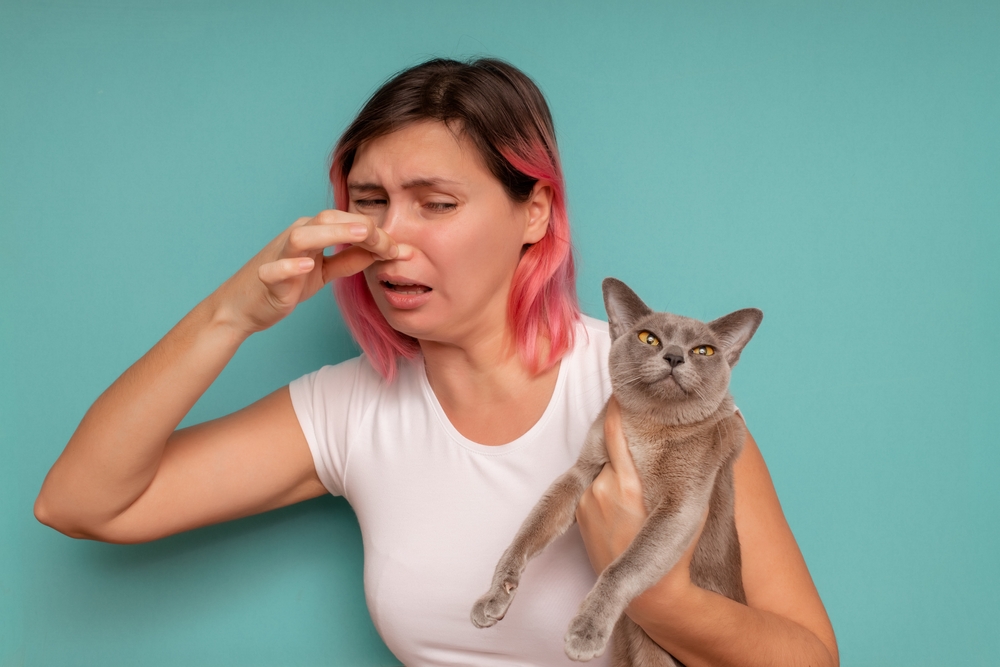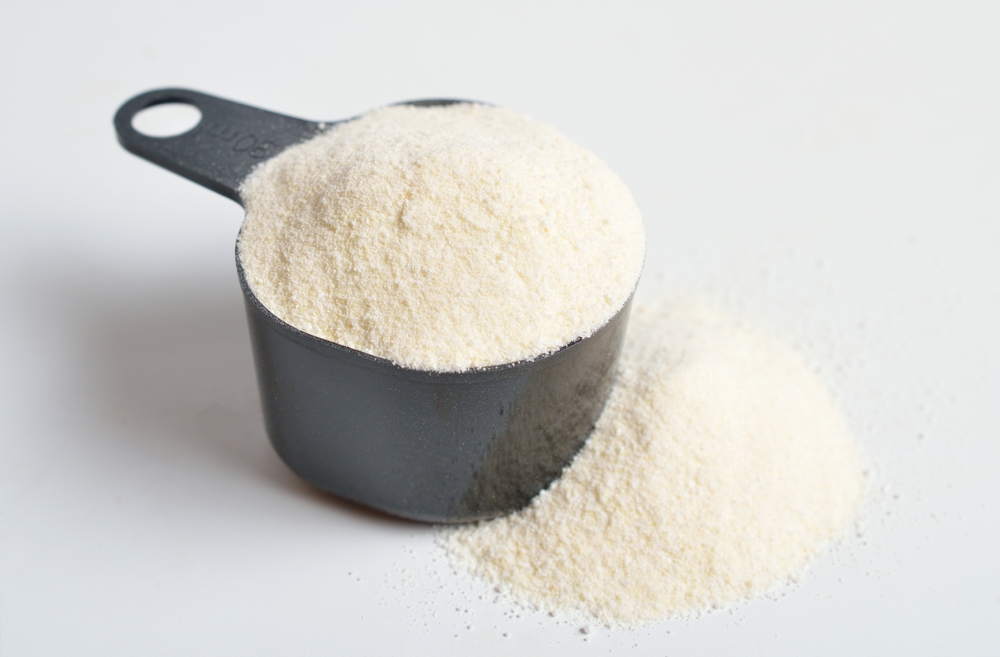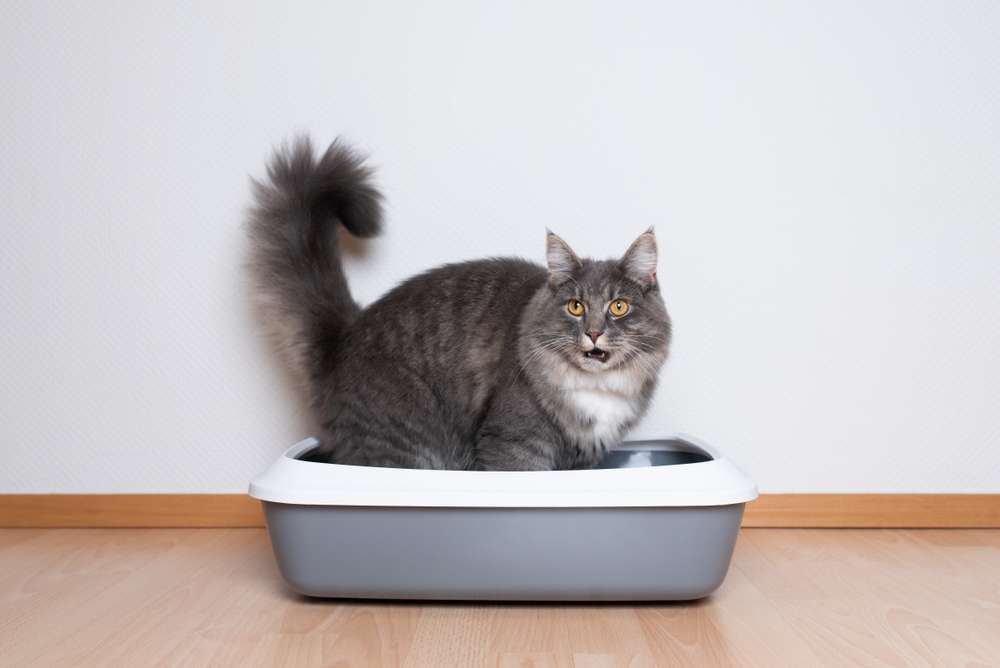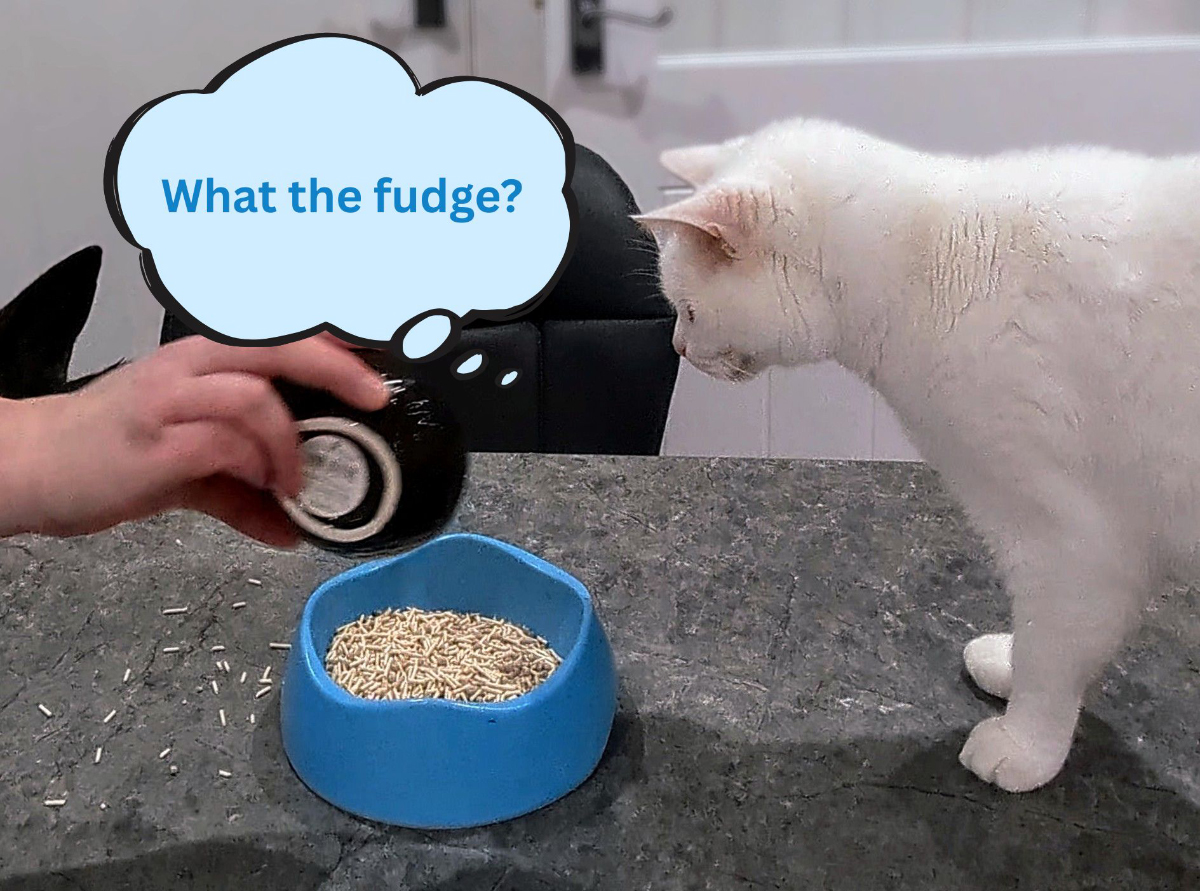Click to Skip Ahead
It’s important to pay attention to any unusual odors coming from your pet. If your cat smells like sulfur or rotten eggs, it’s crucial to determine the cause, as it could be periodontal disease, an infection, or something to do with their diet. Schedule an appointment with your veterinarian for a thorough check-up to identify the reason for your kitty’s stinky smell.

Combatting Bad Smells
Cats are generally good at grooming themselves, but they sometimes need a little extra help to stay fresh. When choosing grooming and cleaning products, it’s important to select ones that are safe for pets. Dry shampoo and pet wipes can help keep your cat clean without the need for a full bath. Additionally, an enzymatic cleaner can effectively neutralize and eliminate any unpleasant odors in your home.
Here are our favorite pet-safe products you can use at home to combat bad smells coming from your cat. The Hepper Waterless No-Rinse Pet Shampoo keeps your pet's coat smelling fresh between baths. The Wash Wipes are perfect for a quick refresh or cleaning of sensitive areas. We also recommend Hepper's Advanced Bio-Enzyme Pet Stain & Odor Eliminator Spray, which permanently removes even the worst stains and odors in your home, making cleanup a breeze.
| Image | Product | Details | |
|---|---|---|---|
For Pet
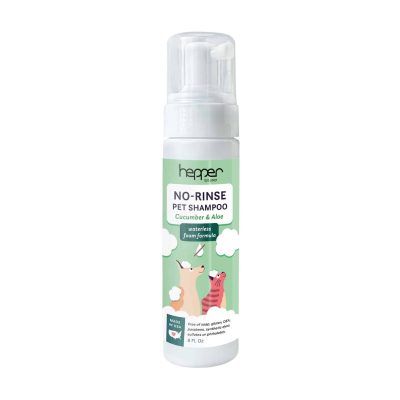
|
Hepper Waterless No Rinse Pet Shampoo |
|
Check Price |
For On-the-Go
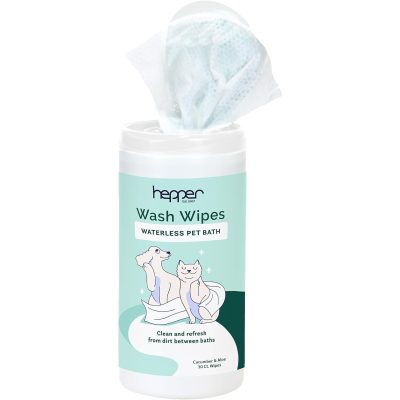
|
Hepper Wash Wipes |
|
Check Price |
For Home
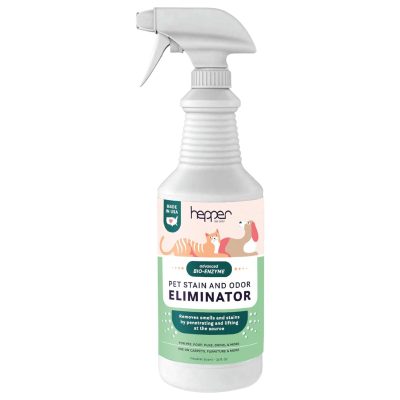
|
Hepper Advanced Bio-Enzyme Pet Stain & Odor Eliminator Spray |
|
Check Price |
At Catster, we’ve admired Hepper for many years and decided to take a controlling ownership interest so that we could benefit from the outstanding designs of this cool cat company!
As mentioned bad odors may indicate a health issue, so identifying the source of the smell is crucial. Addressing any underlying problems promptly can help your cat feel and smell better.

The 7 Reasons That Your Cat May Smell Like Rotten Eggs
1. Periodontal Disease
An oral infection can lead to foul mouth odors and is typically the cause of the issue. That said, other abnormal mouth odors may be caused by stomatitis, mouth cancer, upper respiratory infection, diabetes, an intestinal blockage, or diseases affecting different organs, such as the liver and kidneys.
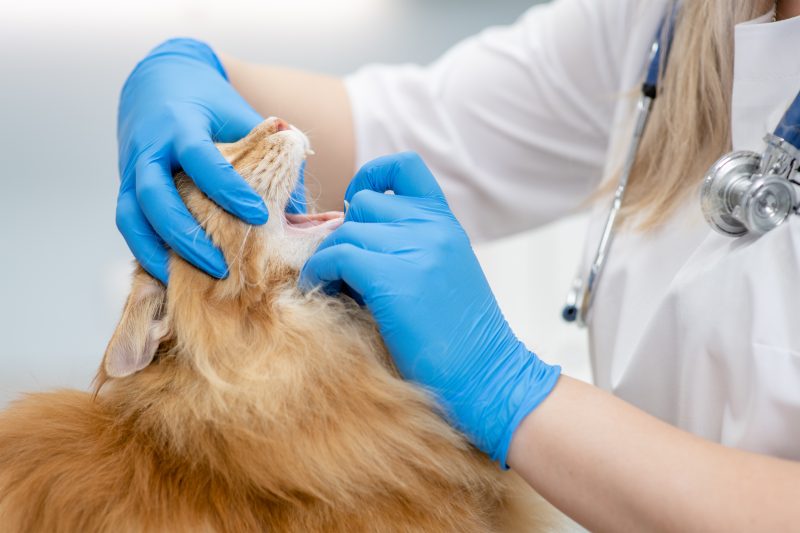
2. Type of Food (Diet)
Feeding certain foods to your cat can lead to bad odors coming from their mouth and poop, including raw foods or ones rich in fish. A sudden change in your cat’s diet can lead to gastrointestinal upset, gas, or diarrhea that can have a sulfur smell.
3. Ear Infection
Fungal and bacterial infections can cause your cat’s ears to smell bad. Ear mite infections can also contribute to foul odors.
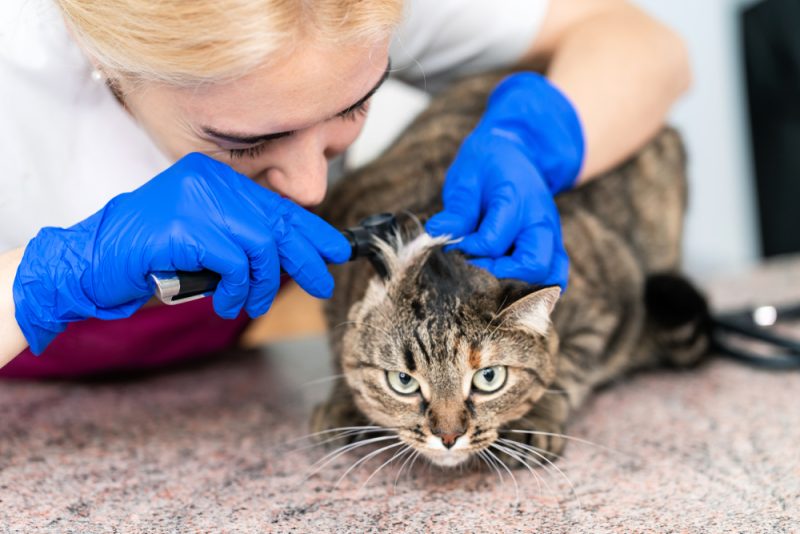
4. Anal Glands
Soft stools may not express the anal glands completely, which may cause a stinky rear end. Infected anal glands can also be smelly themselves. A frightened cat may also intentionally express their anal glands, which have a similar pungent smell.
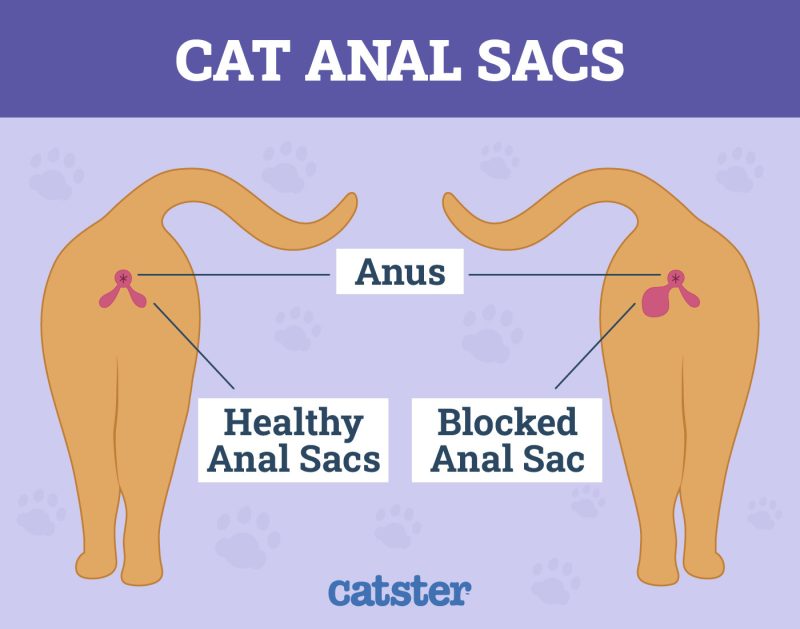
5. Lack of Grooming
Cats with arthritis, obesity, urinary tract infections, diarrhea, or widespread disease may not be able to effectively groom themselves, leading to poor hygiene.
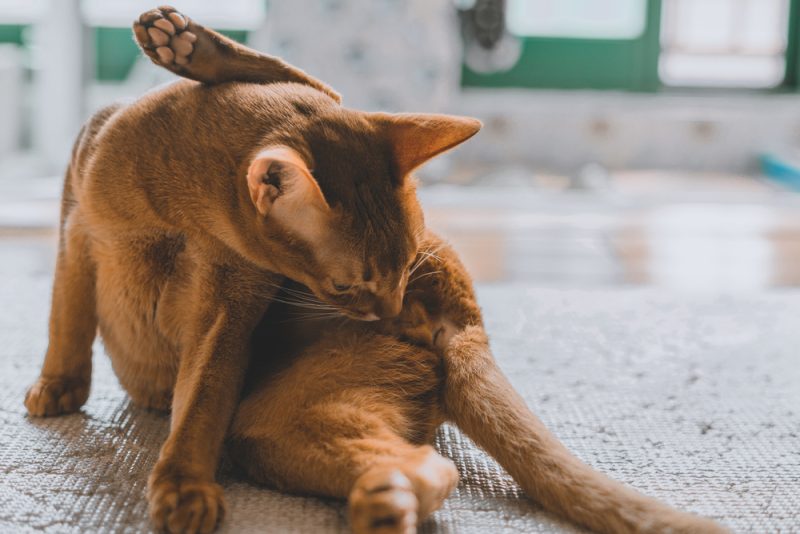
6. Skin Infection
Anything that disrupts the skin’s normal protective barrier, such as wounds, parasites, allergies, and cancer, may cause a bad odor.
7. Dirty Litter Box
Infrequent litter box cleaning can lead to the odors building up, so clean your cat’s litter box daily to prevent a stinky kitty!

Tips for Keeping Your Cat Healthy and Happy
- Clean the litter box daily.
- Schedule daily play and grooming sessions with your cat to help identify any abnormalities.
- Feed your cat a nutritionally complete and balanced diet.
- Take notice of any unusual or abnormal behaviors.
- Schedule regular veterinary visits to detect problems early.
If you’re concerned about your cat’s health we suggest you speak to a vet.
If you need to speak with a vet but can't get to one, head over to PangoVet. It's an online service where you can talk to a vet online and get the advice you need for your pet — all at an affordable price!

Conclusion
If you notice that your cat has a strong smell of sulfur or rotten eggs, it could be gas or expressed anal glands. But the smell could also indicate various underlying issues. Oral infections, cancer, skin infections, lack of grooming, and even the type of food or the cleanliness of the litter box can all be contributing factors. If you detect a sudden onset of this odor, it’s important to promptly schedule a veterinary check-up to identify and address the root cause.
Featured Image Credit: Stanislaw Mikulski, Shutterstock

